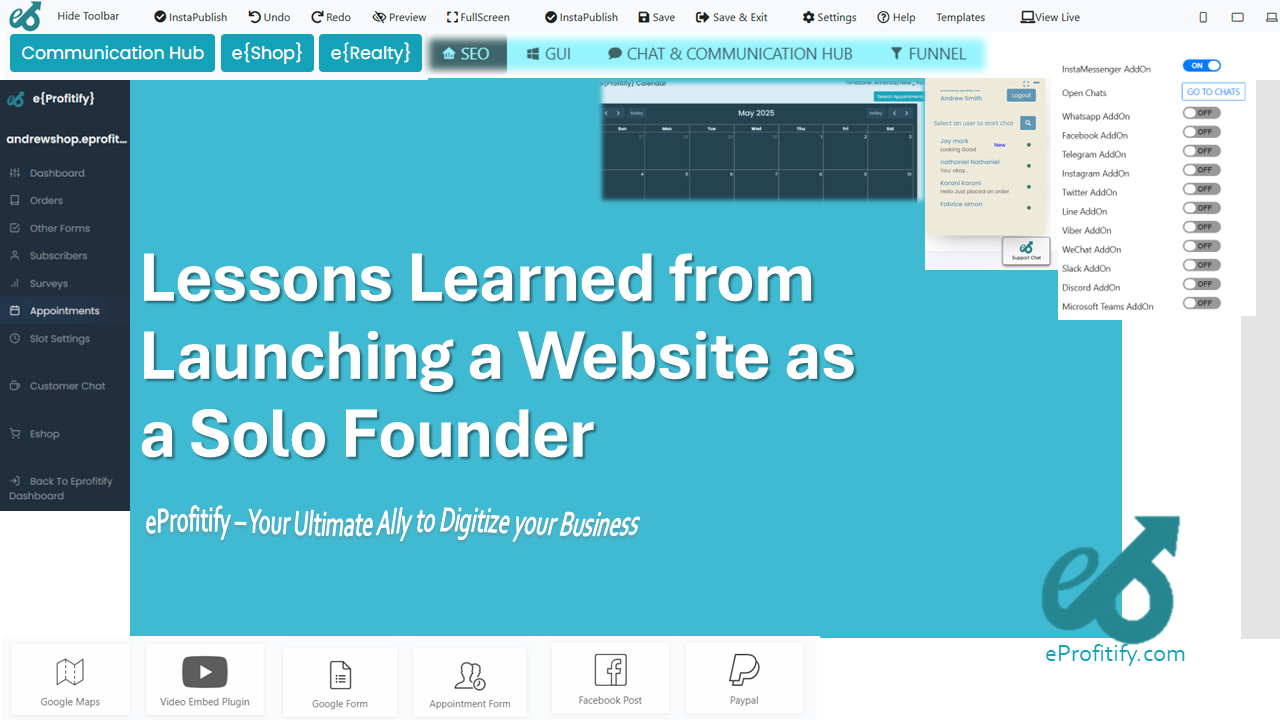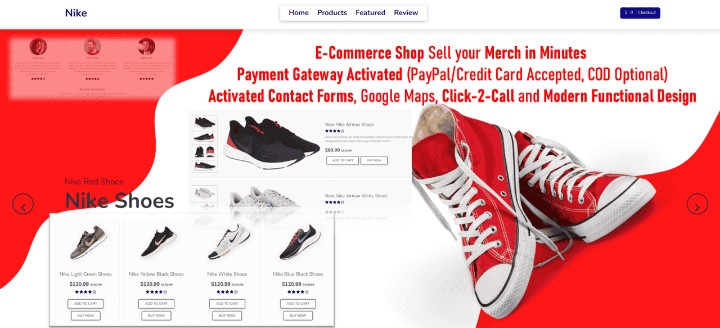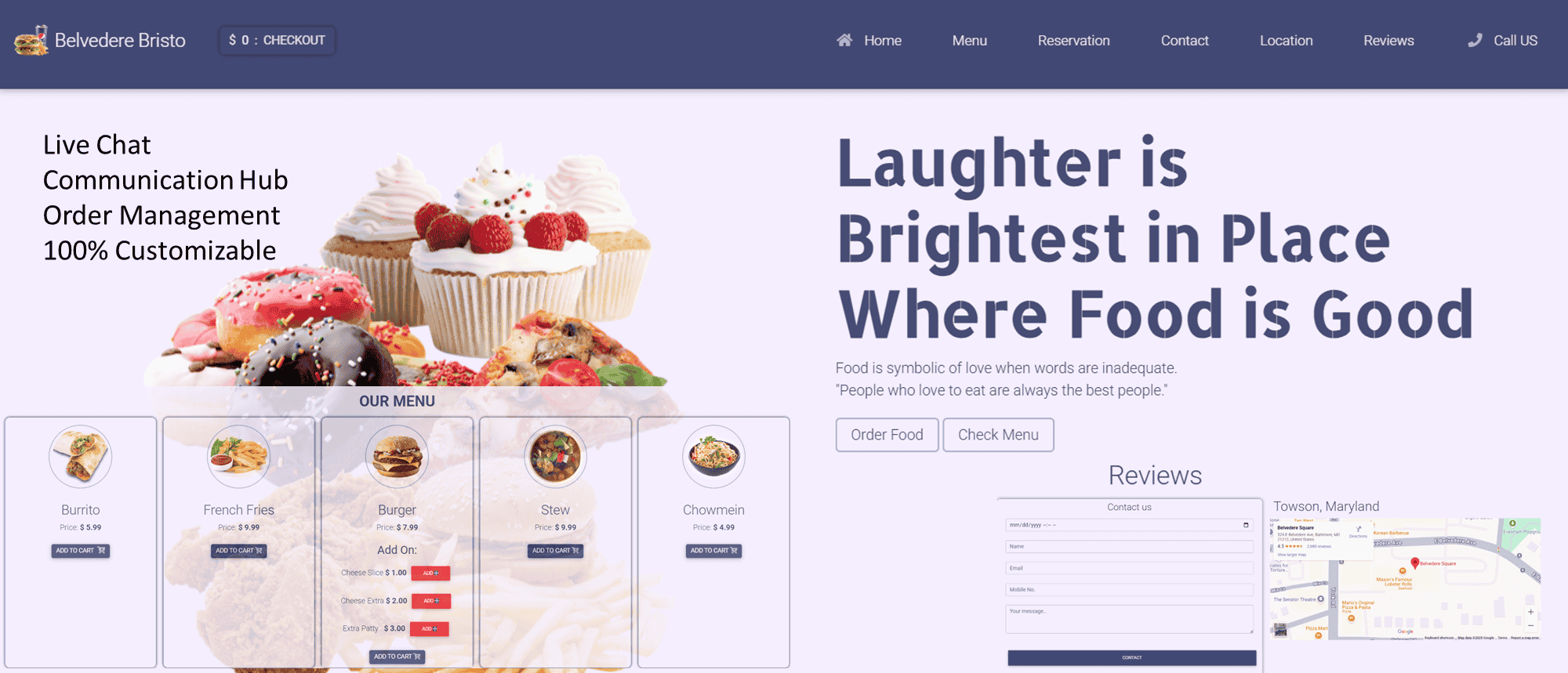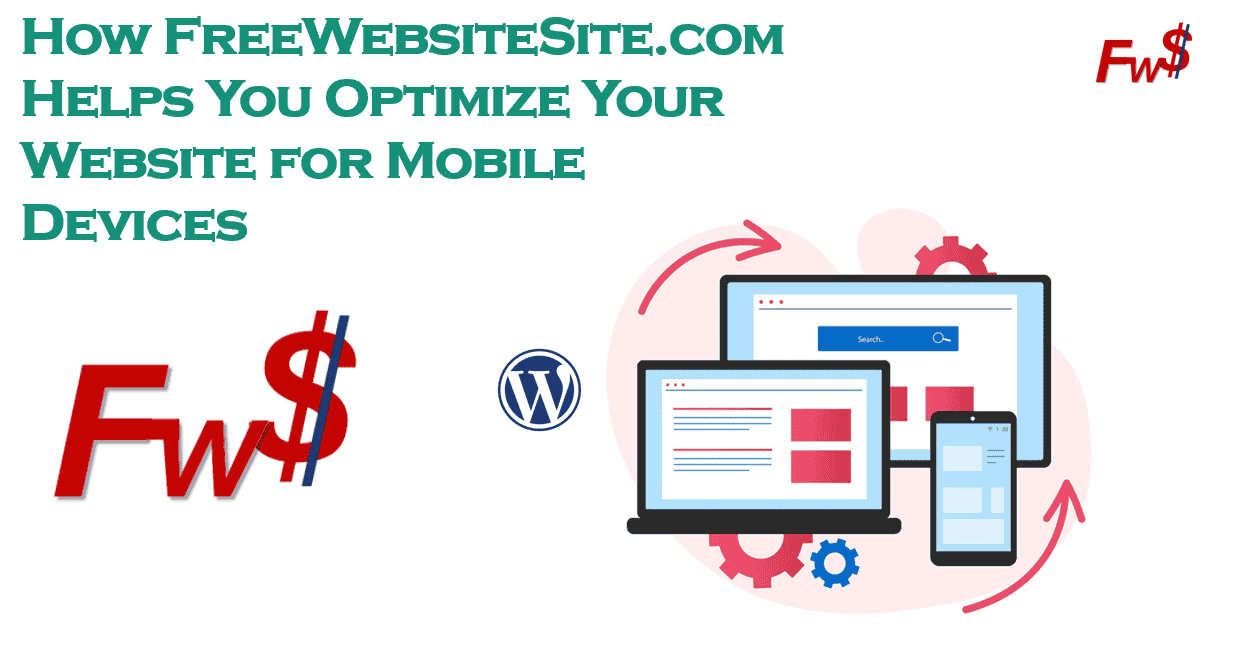Lessons Learned from Launching a Website as a Solo Founder

Lessons Learned from Launching a Website as a Solo Founder
Introduction
Launching a website as a solo founder is a thrilling yet daunting endeavor. With no team to share the workload, every decision—from design to marketing—rests on your shoulders. According to a 2023 report by Small Business Trends, 51% of small businesses lack a dedicated web team, and 70% of entrepreneurs handle website management alone. Add to this the sobering statistic that 50% of startups fail within five years (U.S. Bureau of Labor Statistics), and the pressure to get everything right becomes palpable.
In this high-stakes environment, tools like eProfitify—a leading website publishing and management platform—emerge as game-changers. With features like CRM, ecommerce, instant messaging, and appointment management, eProfitify streamlines operations for solo founders. Drawing from personal experience and industry data, here are eight critical lessons learned from launching a website alone.
Lesson 1: Choosing the Right Tools is Critical
Solo founders often underestimate the importance of selecting integrated tools. A 2022 Zapier study found that 73% of small businesses use 10+ apps daily, leading to inefficiencies. Fragmented systems drain time and resources, especially when managing tasks solo.
How eProfitify Helps:
eProfitify consolidates essential tools into one platform. Its all-in-one dashboard includes CRM for customer tracking, an ecommerce suite for online sales, and instant messaging for real-time communication. By reducing app overload, founders save an average of 6 hours weekly—time better spent on growth.
Lesson 2: Time Management is Non-Negotiable
A solo founder wears every hat: developer, marketer, and customer support. A Stanford study revealed that 72% of solo entrepreneurs work over 50 hours weekly, risking burnout.
How eProfitify Helps:
Automation is key. eProfitify’s appointment management system auto-schedules meetings, while CRM workflows send personalized follow-ups. These features cut administrative tasks by 30%, allowing founders to focus on strategy.
Lesson 3: User Experience Can Make or Break Your Site
First impressions matter. Google reports 53% of mobile users abandon sites taking longer than 3 seconds to load, and 88% won’t return after a poor experience.
How eProfitify Helps:
eProfitify offers responsive, SEO-optimized templates and fast hosting. Its analytics tools track bounce rates, enabling real-time tweaks. Founder Sarah Lee credits eProfitify’s UX tools for reducing her site’s bounce rate by 40% in three months.
Lesson 4: Marketing is a Marathon, Not a Sprint
SEO and content marketing yield long-term results but require patience. HubSpot notes that SEO-driven leads close 14.6% of the time, versus 1.7% for cold calls.
How eProfitify Helps:
Built-in SEO tools automate keyword optimization and meta tags. Integrated blogging modules streamline content creation, helping startups rank faster.
Lesson 5: Financial Planning and Budgeting Matter
Launching a website costs between $2,000–$10,000 upfront (Clutch, 2023). Subscription sprawl adds up: separate CRM, hosting, and ecommerce platforms can exceed $300/month.
How eProfitify Helps:
Priced at $99/month all-inclusive, eProfitify reduces costs by 60% compared to piecemeal tools. Starters can launch with minimal investment, scaling features as revenue grows.
Lesson 6: Customer Engagement Drives Retention
Retaining customers is cheaper than acquiring new ones. Bain & Company found a 5% retention boost increases profits by 25–95%.
How eProfitify Helps:
eProfitify’s instant messaging widget lets founders engage visitors in real time. Coupled with CRM insights, clients like Mark Chen report 20% higher repeat sales through personalized campaigns.
Lesson 7: Security and Maintenance Are Ongoing Priorities
Cyberattacks target 43% of small businesses (Verizon), yet 60% lack recovery plans. Regular updates and backups are vital.
How eProfitify Helps:
Automatic security patches and SSL certification come standard. Daily backups ensure data safety, giving founders peace of mind.
Lesson 8: Data-Driven Decisions Fuel Growth
Analytics guide smarter choices. Companies using data see 8% higher ROI (McKinsey).
How eProfitify Helps:
The platform’s analytics suite tracks traffic, conversions, and sales. A/B testing tools let founders refine landing pages, boosting conversion rates by up to 35%.
Conclusion
Launching a website alone is a monumental task, but leveraging the right tools can tilt the odds in your favor. eProfitify’s integrated features—from CRM to instant messaging—address core challenges faced by solo founders, saving time, cutting costs, and enhancing user experience. While the journey is demanding, platforms like eProfitify empower entrepreneurs to compete effectively, turning solitary ventures into scalable successes.
By embracing these lessons and harnessing technology, solo founders can navigate the chaotic startup landscape with confidence. After all, in the words of Reid Hoffman, “If you’re not embarrassed by your first product launch, you’ve launched too late.” Start lean, iterate fast, and let tools like eProfitify handle the heavy lifting.








